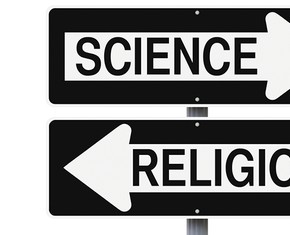The views expressed in our content reflect individual perspectives and do not represent the authoritative views of the Baha'i Faith.
Like the image we infer from the Qur’an, the concept of God in the Baha’i Faith is likewise a Being beyond exact or complete comprehension, an essentially unknowable Creator of infinite logic and love:
To every discerning and illumined heart it is evident that God, the unknowable Essence, the divine Being, is immensely exalted beyond every human attribute, such as corporeal existence, ascent and descent, egress and regress. Far be it from His glory that human tongue should adequately recount His praise, or that human heart comprehend His fathomless mystery. He is and hath ever been veiled in the ancient eternity of His Essence, and will remain in His Reality everlastingly hidden from the sight of men.
RELATED: What Do You Mean by ‘God’?
In this understanding, from Baha’u’llah’s Book of Certitude, Baha’is regard God as purposeful, absolutely benign, and fully in control of His creation and the educational system He has established. However, the Baha’i texts do assert that knowledge of the character of the prophets—“the “Day Stars of His divine guidance”—is tantamount to knowledge of God, as in this passage from Baha’u’llah:
The door of the knowledge of the Ancient Being hath ever been, and will continue for ever to be, closed in the face of men. No man’s understanding shall ever gain access unto His holy court. As a token of His mercy, however, and as a proof of His loving-kindness, He hath manifested unto men the Day Stars of His divine guidance, the Symbols of His divine unity, and hath ordained the knowledge of these sanctified Beings to be identical with the knowledge of His own Self. Whoso recognizeth them hath recognized God. Whoso hearkeneth to their call, hath hearkened to the Voice of God, and whoso testifieth to the truth of their Revelation, hath testified to the truth of God Himself.
Therefore, a study of the authoritative accounts of the lives of the Bab and Baha’u’llah contributes greatly to our understanding of the Creator, His purposes, and His methodology.
Two Categories of Prophets
The Baha’i texts distinguish between major prophets—also called universal manifestations, those who bring a new “Book” and start a new religion—and minor prophets, those who assist, reinforce, or reinvigorate an existing religion.
In discussing this distinction in his book Some Answered Questions, Abdu’l-Baha contrasted the “independent” prophets or the manifestations of God with the minor prophets who are themselves followers of the manifestation in whose dispensation they live:
Prophets are in general of two kinds. Some are independent Prophets Who are followed, while others are not independent and are themselves followers.
The independent Prophets are each the Author of a divine religion and the Founder of a new Dispensation. At Their advent the world is clothed in a new attire, a new religion is established, and a new Book revealed. These Prophets acquire the outpouring grace of the divine Reality without an intermediary. Their radiance is an essential radiance like that of the sun, which is luminous in and of itself and whose luminosity is an essential requirement rather than being from another star: They are like the sun and not the moon. These Daysprings of the morn of Divine Unity are the fountainheads of divine grace and the mirrors of the Essence of Reality.
The other kind of Prophets are followers and promulgators, for their station is contingent rather than independent. They acquire divine grace from the independent Prophets and seek the light of guidance from the reality of universal prophethood. They are like the moon, which is not luminous and radiant in and of itself but which receives its light from the sun.
Abdu’l-Baha then gave some examples of this distinction by classifying Abraham, Moses, Christ, Muhammad, the Bab, and Baha’u’llah as independent manifestations. He classified Solomon, David, Isaiah, Jeremiah, and Ezekiel as minor prophets.
RELATED: Why Religion Needs Renewal
In addition to elucidating the explanation of how the Creator has established a logical and progressive educational system for humankind, the Baha’i texts also provide a greatly enhanced understanding of God’s motive by explaining in detail the educational process that Muhammad sketches in very general terms. For where Muhammad is responding to the anthropomorphic image of God derived from Christianity by making absolutely clear the distinction between the station of the prophets and the station of the Creator, the Baha’i writings are able to build on that foundation by giving a much more exacting description of human history as a dynamic, logical, comprehensible, and divinely guided process.
Therefore, while there still remain a variety of concepts of a Supreme Deity in extant systems of belief, the most abiding image has emerged from the more recent Abrahamic line of prophets during which time the world has gradually become a global community “contracted and transformed into a single highly complex organism,” as Shoghi Effendi described it in his book The World Order of Baha’u’llah. While we can draw from features of this portrait as it emerged in Judaism, Christianity, and Islam, let us begin with the assumption of the fundamental parameters of the definition of God as delineated in the most recent in this line of religions—the Baha’i Faith—as the basis for examining the next obvious step in a systematic study of the prophets.
This series of essays is adapted from John Hatcher’s book The Face of God Among Us, with the permission of the author and the publisher. To purchase the entire book, please click here.
















Comments
Sign in or create an account
Continue with Googleor